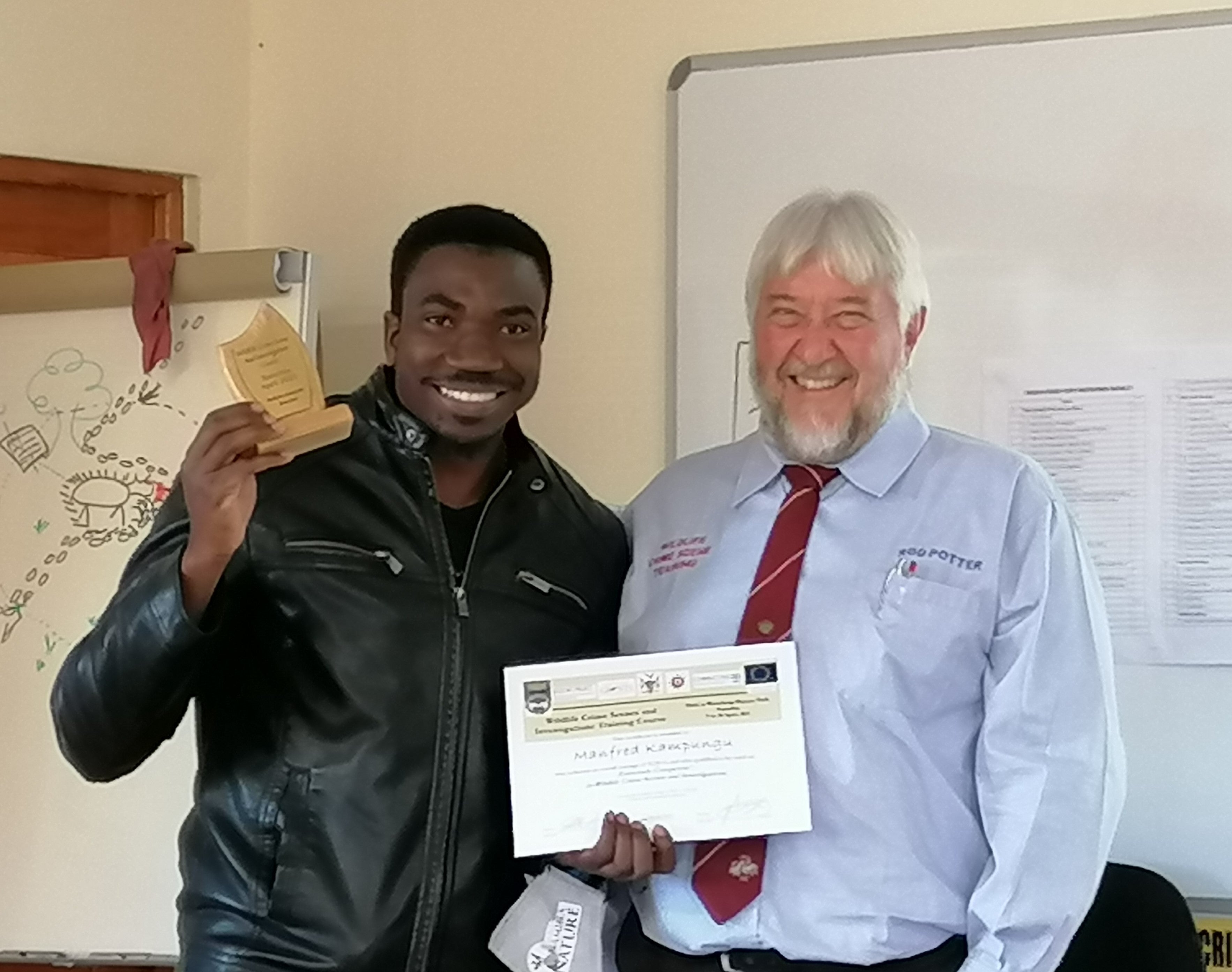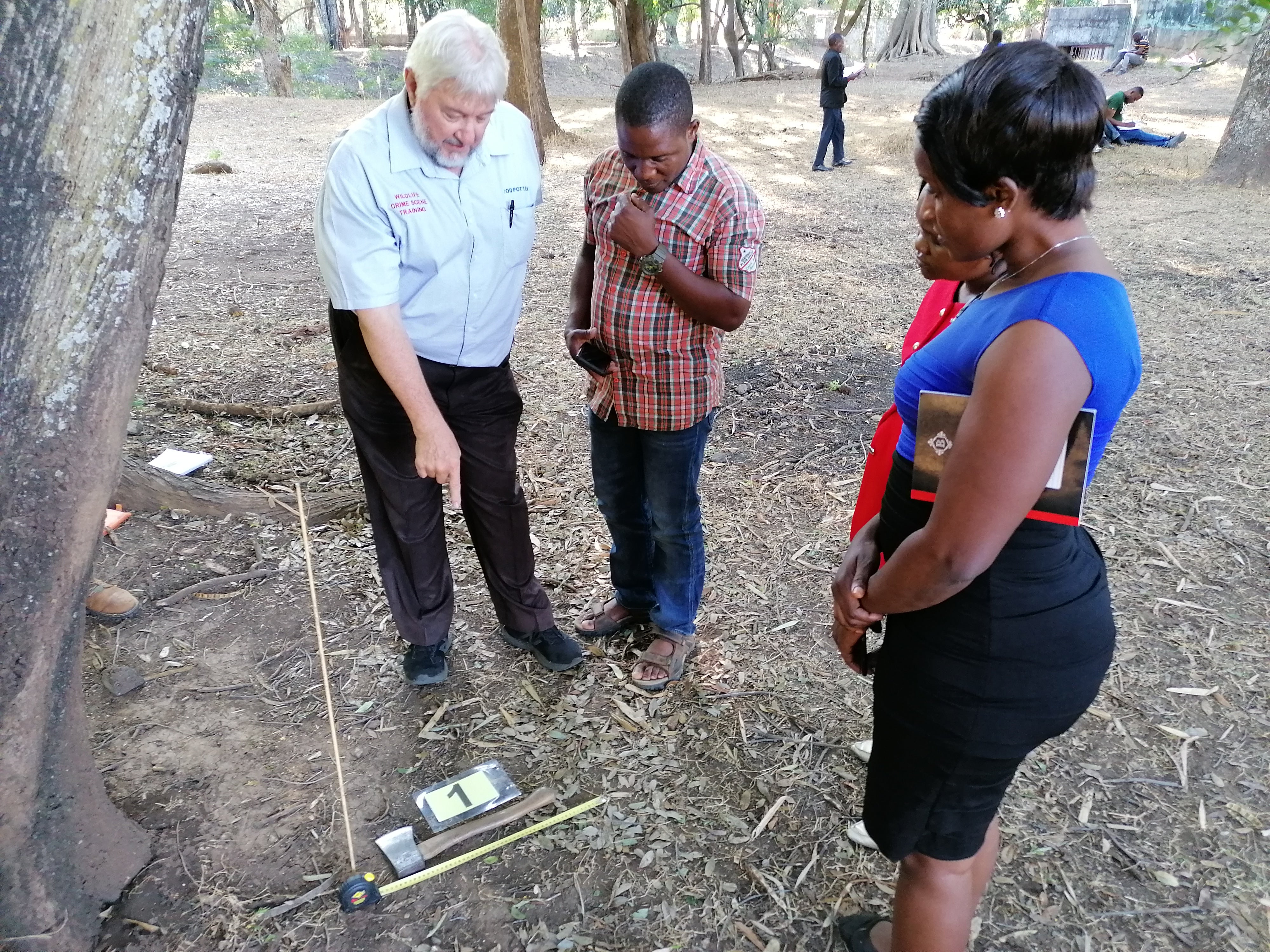Inspiring the next generation of wildlife crime investigators
Rod Potter is conservation’s Sherlock Holmes; a Wildlife Investigator who has devoted his life to the protection of nature. He tells The Independent about the long road to stopping the illegal wildlife trade

Your support helps us to tell the story
From reproductive rights to climate change to Big Tech, The Independent is on the ground when the story is developing. Whether it's investigating the financials of Elon Musk's pro-Trump PAC or producing our latest documentary, 'The A Word', which shines a light on the American women fighting for reproductive rights, we know how important it is to parse out the facts from the messaging.
At such a critical moment in US history, we need reporters on the ground. Your donation allows us to keep sending journalists to speak to both sides of the story.
The Independent is trusted by Americans across the entire political spectrum. And unlike many other quality news outlets, we choose not to lock Americans out of our reporting and analysis with paywalls. We believe quality journalism should be available to everyone, paid for by those who can afford it.
Your support makes all the difference.There aren’t many people who can claim that no-one else could do their job. But as the global leading expert on wildlife crime scene management, Rod Potter provides unique insight for people fighting on the frontline against poachers.
“There isn’t anyone else doing the training I do,” says Potter. “It’s based on my own experience, which is over 30 years in the field, and I tailor every training course to the specific needs of whoever I’m training and their country’s legislation, which makes each course unique.”
Formerly a Sergeant in the South African police force, after six years of service Potter left to pursue a career in nature conservation.
“The love of wildlife has been there ever since I can remember, as a boy I had a romantic concept of being a game ranger,” he smiles. “That didn’t pan out, but after my time in the police force I decided to follow my calling and studied to become a nature conservation officer.” Potter joined the Natal Parks Board as a Conservator Law Enforcement in Zululand [present-day KwaZulu-Natal in South Africa] where he headed up all serious conservation crimes, with a focus on rhino poaching and illegal trade - for which he was assigned Top Secret security clearance.
“As a wildlife investigator, I would often arrive at wildlife crime scenes that had been disturbed,” says Potter. “That is, messed up by people who hadn’t been trained in how to manage them. It happened many, many times… and it was very frustrating.
“I decided to start training people to be more aware of the right and wrong things to do at a crime scene. An investigator can only work with what he finds, so I started my training to save myself."

To this end, Potter began to develop training courses on crime scene management techniques, including everything from DNA collection, forensics and footwear impression recovery, to the identification of rhino horn.
“I’m forever optimistic, I have to be, but I do believe that we’re making a difference. There is a new breed of investigator on the ground, and they are better trained to make significant progress in the war against the illegal wildlife trade. Without them, we would certainly be lost.”
In 2016 Potter began working with International conservation organisation Space for Giants, and he has since delivered training across Africa, including Kenya, Uganda and the KAZA region.
Notably, he has trained more than 60 Kenya Wildlife Service Scene of Crime Officers to an advanced level. It’s no coincidence that as a result conviction rates for wildlife criminals in Kenya have climbed through this strengthened capacity building and collaboration, putting notorious poachers in jail and disrupting the multi-billion pound illegal trade of wildlife.
“The proof is in the pudding, in the courts,” says Potter. “I do think things are changing, although you might expect me to say that.
“Sentencing is definitely more severe, especially in Kenya and Uganda. The delivery of evidence to courts is vastly improved, based on the understanding of the need to find ways to connect the suspect back to the crime scene.
“The police department has been around for decades, but wildlife investigative teams are new kids on the block and they’re making a really good name for themselves. The courts have faith that what they are presented with is true.
“I always make sure I go back to see those I’ve trained, to answer questions and mentor in any way I can. I get the odd email from guys saying how much they appreciate what I’ve done for them, and that every time we get together we learn something new. I feel I’m putting back into the profession of wildlife investigation, and that’s something I’m proud of. ”
Space for Giants thanks the US Dept of State INL and the EU for supporting this work.
Join our commenting forum
Join thought-provoking conversations, follow other Independent readers and see their replies
Comments